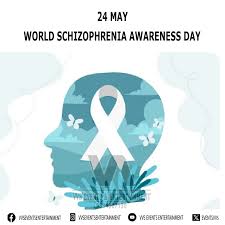By Folasade Akpan
The Nigerian American Institute for Mental Health emphasises that families play a vital role in the successful management of schizophrenia, serving as a primary support system and significantly influencing treatment outcomes.
Dr Azubuike Aliche, Secretary of the institute, said this in an interview with the News Agency of Nigeria (NAN) on the occasion of World Schizophrenia Day 2025, commemorated globally on May 24.
The 2025 theme is “Rethink the Label: Reclaim the Story.”
Aliche explained that the theme was a reminder that labelling people with mental illness fostered stigma and hindered access to help and treatment.
He stressed the importance of sharing the real-life experiences of those affected by mental illness to foster understanding and compassion.
According to him, the family is crucial because it provides practical, emotional, and treatment-related support that can significantly improve both the individual’s recovery and the overall well-being of the family unit.
“Family members who assist with medication management, offer encouragement, and help reduce relapse rates, contribute to better health outcomes.”
Describing schizophrenia, Aliche said it was a chronic mental disorder that disrupted thought processes, perceptions, and emotional responses.
“Symptoms include delusions, hallucinations, disorganised thinking, and negative symptoms such as reduced emotional expression, decreased speech, loss of motivation, and social withdrawal.
“Other potential symptoms include paranoia, suspiciousness, depression, anxiety, substance use, difficulty with personal hygiene, and social isolation.
“Symptoms can vary in intensity and duration, and the specific symptoms experienced can differ from person to person,” he added.
He estimated the prevalence of schizophrenia in Nigeria at about 0.4 per cent, translating to approximately 1.86 million people living with the condition.
On the comparison between schizophrenia and bipolar disorder, Aliche clarified that both were psychiatric illnesses but differ significantly in core symptoms and manifestations.
“Schizophrenia is primarily characterized by psychosis, while bipolar disorder involves mood swings between mania and depression.
“Psychosis can occur in bipolar disorder but only during extreme mood states.
“Research has shown that early diagnosis, antipsychotic medication, reduced family stress, talk therapy, and stable living conditions can all contribute to a successful recovery,” he said.
Aliche lamented the lack of adequate research funding for schizophrenia compared to physical illnesses like heart disease or cancer, in spite of the significant body of evidence guiding treatment.
According to him, effective management of schizophrenia in Nigeria is further hindered by widespread beliefs in supernatural causes of mental illness.
“This often leads families to seek help in traditional healing centre or prayer houses, where patients may suffer human rights abuses.”
He urged the development of national policies that directly address schizophrenia and other mental health conditions.
Aliche also called for more platforms for people living with schizophrenia to share their own stories, which would help society better understand and support them. (NAN)(www.nannews.ng)
Edited by Collins Yakubu-Hammer/Abiemwense Moru












